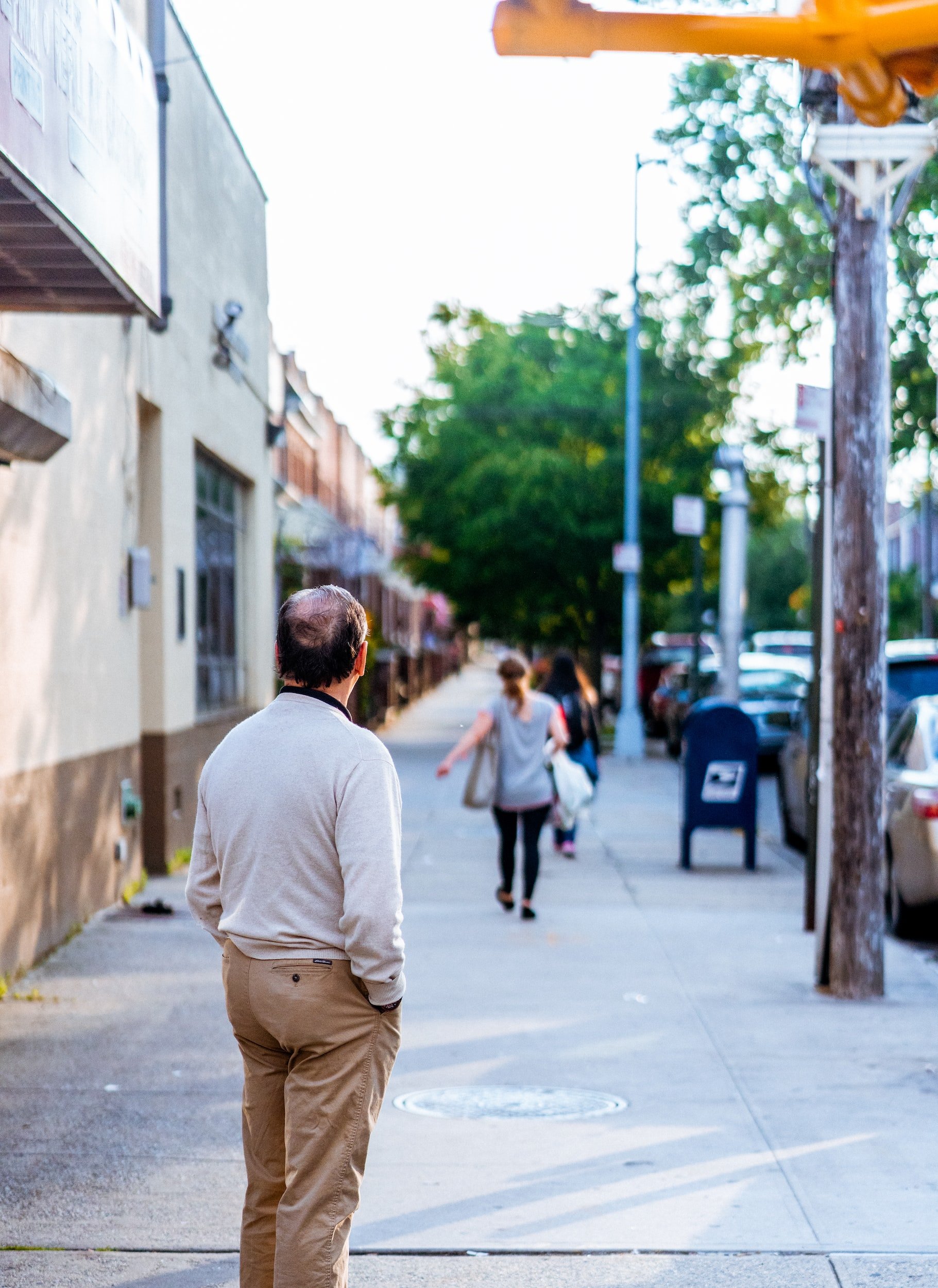Mar 7 - Depth Over Distance, NOT Every Time, My Dear - Daily Drop #10
I was listening to Ben Howard’s “Depth Over Distance” today. I mean, apart from the fact that it’s an amazing song, the lyrics in it gave me pause. I realised just how easy it is for anxious-attachment to hide itself, how easy it is for insecurity to sing itself romantic.
I mean, yeah, maybe I over-thought the song, but bear with me. I might still have a point.
Insecuity as Romance
Take the following lines. They’re dressed up as romantic, right?
“Depth over distance every time, my dear
And this tree of ours may grow tall in the woods”
The idea is that if you stay connected, the relationship will grow. Don’t withdraw, my dear, or you’ll threaten the relationship. Even the lines that follow later, seem to scream “society’s got it wrong! we’re all too distant!”:
“Depth over distance was all I asked of you
And everybody round here's acting like a stone.”
Many people, and especially insecure, anxiously-attached people, would say “How can we argue with that?” Of course connection is better than space, togetherness is better that separateness, depth better than distance.
Well, let me try and give another side to the story….
Questioning Connection At All Costs
Here’s another relationship tenet that differently insecure, avoidantly-attached folks would find equally unquestionable: space in a relationship is healthy.
Wait, if there’s a relationship conflict some say “choose connection!” Others might say, “take some space from each other!”
Uh oh. Now what do we do?
Is it depth over distance, every time, my dear?
Is taking some space not OK?
Why can’t this tree of ours grow tall in the woods even if we take some space?
Is the tree that fragile that it needs constant connection, constant attention?
Here’s something to be aware of: the demand for constant depth, constant connection, can come from a deeply wounded, deeply insecure place. It’s that text you send not out of love, but fear, because your partner’s not replied for a while. It’s that sense of unease you feel about just sitting around at home together, not chatting, just each of you doing your own thing. Why are you not connecting?!? Is everything OK? It’s that hurt you feel when your partner wants to do something on their own, or just with their friends. Why don’t they want to be with me?! What’s wrong?
Perhaps it’s less a desire to be together, and more a fear of being alone? Perhaps it’s less a sense of joy in the relationship, and more a fear that space might mean loss? Perhaps it’s less a desire to express our love for our partner, and more a fear that perhaps we aren’t loved, so we need proof, now, every time, my dear!
The Painful Conequences
If you’re stuck in this anxious-attachment style, the consequences can be brutal. The constant need for attention can be exhausting for the relationship.
The irony is that the tree cannot grow in constant sunlight. It’ll burn and wither. Night is needed for the tree to truly breathe.
Demanding constant connection in a relationship can feel suffocating for many people. Some enjoy space from their partners. Some, especially avoidantly-attached folks, need to withdraw sometimes (more on that side of things in a future Daily Drop -subscribe to stay updated!)
The troubling consequence of seeking constant depth and connection, then, is that we unintentionally push the one we love away. This can have the unfortunate consequence of feeding the anxious-attachment, reinforcing the idea that “people leave” or “I’m not loveable” or “nobody cares about me”. We get locked into a terrible vicious cycle.
Healing this dynamic
I won’t sugar-coat it. Healing attachment styles can be hard! Therapy can be a good idea, especially if you’ve found yourself in the crucible of a trauma-bond (where two opposing attachment styles ignite each other). Though painful, these relationships can trigger lots of personal transformation. I know. I’ve been there! Feel free to contact me if you’d like to work together.
That said, for the anxiously attached person, there are a few things that can help in allowing space and, yes, separation, in the relationship:
Learn to Be Alone: This is about finding ways to enjoy being alone or away from our partners. Think favourite movies, reading books, meeting friends, having baths, even weekends away without your partner! Whatever it is that you might enjoy without your partner, make a list and take some time every week to deliberately be alone or separate from your partner.
Respect Boundaries During Conflicts: Anxiously-attached folks can really struggle during conflicts, so much so that it can become borderline abusive. Note: not allowing your partner space when they ask for it, following them into a room when they walk away, continually trying to connect or resolve a conflict when they’ve said they need a break - this is bordering on abusive behaviour, as it’s completely ignoring your partner’s boundaries and request for space. Learn to respect their boundaries.
Embrace Space During Conflict: It can be incredibly upsetting for an anxiously-attached person to see their partner take space during a conflict. Being anxiously-attached can mean desperately wanting to reconnect and resolve the conflict, perhaps because out of fear that the relationship is under threat. It’s important to find ways to be alone during conflicts. Maybe journal it out. Say all the things you want to say to you partner to the page. If you’re scared or angry, maybe a run would help you express the energy. Reflect on what might help during these times, write a list, and go to this list when in conflict.
Ask Your Partner For Reminders of Return: This can be really helpful before allowing a period separation into the relationship. It’s really simple, but super helpful. Our partner can simply say: “I need some space right now, but I’m looking forward to coming back to you soon.” Even better would be to arrange a specific time. Like, “I’d like to take some space right now, but let’s come back together tomorrow evening and have a nice dinner together.”
Don’t Allow Distance to Mean Avoiding Issues: This is important. Sometimes taking space can result in issues in the relationship being avoided, and that’s not good. If that’s happening, it can be important to allow the need for space, but to also request some dedicated time to talk about what happened. For example, we might say, “It’s difficult for me to allow space like this, but I’m OK with it too. Still, I’d like to come back to this when we’re both feeling more settled.”
Balance
As you can see from the above pointers, depth and distance in a relationship can work together. Certainly it’s not “depth over distance, every time,” as this doesn’t allow space. And definitely it’s not taking space every time there’s an issue, and then never actually tackling the issue.
A good enough relationship allows separation and connection, space and togetherness, depth and distance.
In The Comments: What do you think?
Which one do you struggle with the mean, allowing depth, or allowing distance?
Why is is difficult to allow this depth or distance?
What do you think might help you allow both in a more balanced way?










